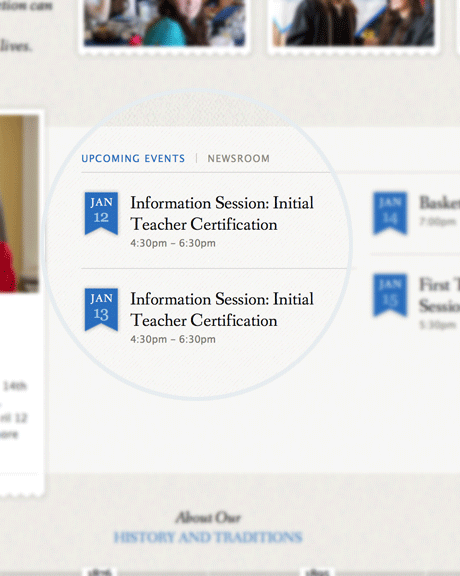Virtual and augmented reality could soon become the new normal. From “Pokemon Go” to the Oculus headset, companies, games and tools are popping up all over to meet consumer demand. But authentic experiences and relationships aren’t built and maintained in another reality, they’re carefully created and nurtured in actual reality. Events, promoted using an online calendar, are a key way that organizations can connect directly with their customers and prospects to drive engagement and deepen relationships in the real world.
The power of events
Considering hosting events to deepen customer engagement? You’re not alone. The use of events by marketers is on the rise, and they show no sign of stopping. The most recent Bellwether report from the Institute of Practitioners in Advertising found that event marketing spend rose for the 12th consecutive quarter in Q3 2016. Companies like Lean Cuisine, Google and Guinness have all turned to experiential marketing to make an impact, and customers are listening: 55% of millennials say they’re spending more money on events and live experiences than ever before.
Optimizing events online
So how do you optimize your events to maximize actual reality? Start by utilizing online event calendars — and no, I don’t mean your old school Outlook calendar. Marketers need to adopt an online calendar that allows them to track and analyze online engagement before, during and after an event, as well as measure attendance, attendee geography and social media engagement to guide their future event planning.
The benefits of an online event calendar
Online calendars offer built-in marketing tools. For example, have you ever considered that the details about each of your events are valuable event content that can drive traffic and engagement? An online calendar allows you to create unique landing pages for each event, and gives you the opportunity to create additional relevant content that can boost your SEO.
Online calendars can also drive and measure social engagement — a critical component of a well-promoted event. In addition to providing the full details of your event to get attendees pumped up, an interactive event calendar with unique landing pages will allow your attendees to help generate buzz by sharing on social media and letting their network know they plan on attending.
Creating an engaged audience before the event is important, but so is the data that comes during and after. The right online event calendar will provide marketers with access to analytics that allow them to assess metrics including reach, attendance, engagement and more — all of which help demonstrate the overall success of your event. It will also integrate with the tools you use every day, whether that’s a plugin to embed into your current CMS or offering attendees the ability to buy tickets right from the calendar page. Online event calendars are all about centralization and efficiency. With targeted landing pages for each event, they enable platform administrators to easily update and promote their events and allow attendees to effortlessly find all the information they need in one place.
The bottom line
Events are the best way to connect with your audience in real-time, and online event calendars facilitate the event experience, making it easier for you to market and your attendees to enjoy. It’s a win-win situation that will locate your brand smack dab in the middle of actual reality. Above all, the right online calendar streamlines the work marketers have to do to get an event up and running, integrates with existing tools, provides an opportunity to analyze data and maximizes engagement with attendees.
About the author: Krystal Putman-Garcia is the VP of Marketing for Localist, where she helps organizations maximize the value of their events to grow sales and engagement efforts. She has spent the past 15 years working in various marketing and partnership capacities, from managing and growing multi-million dollar sponsorships at Discovery Channel to leading market entry strategies for an Israeli medical device start up.
